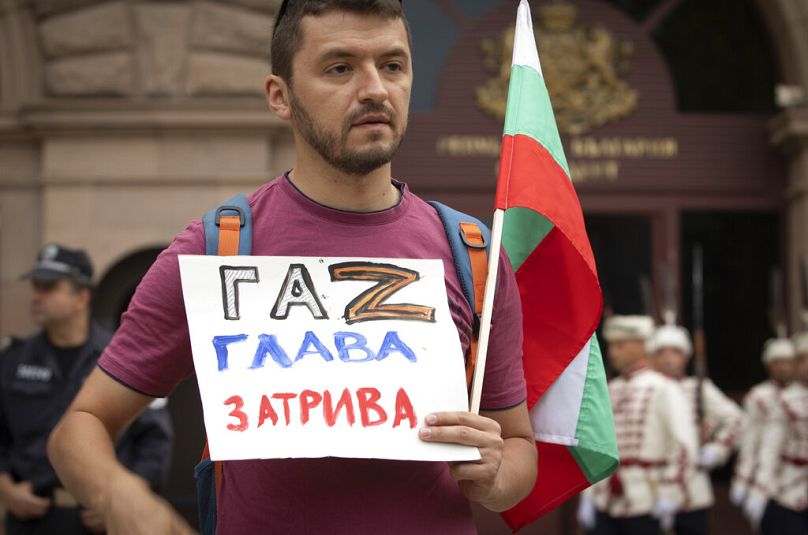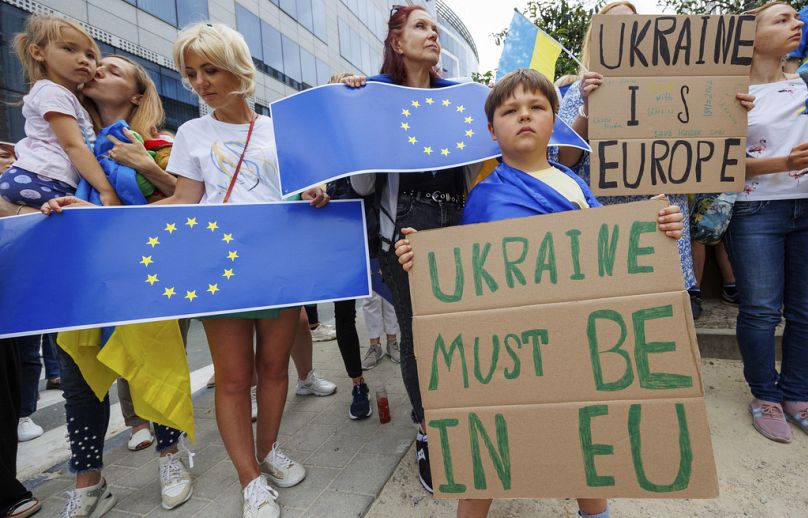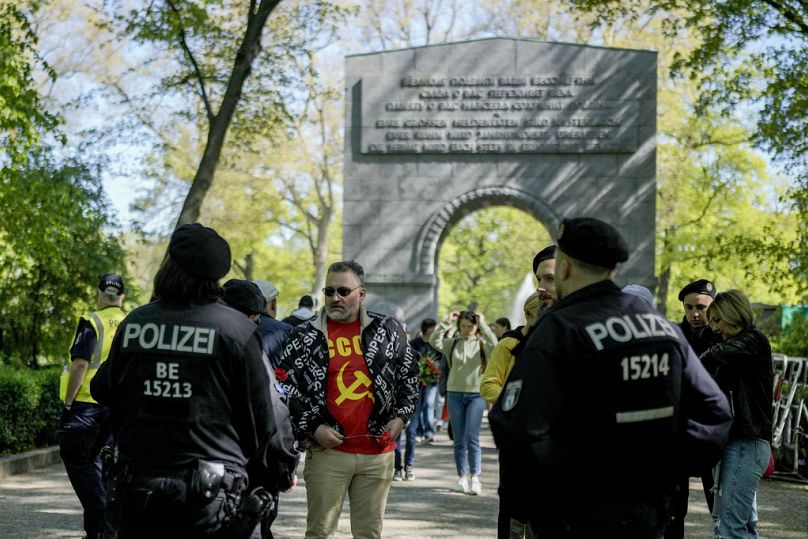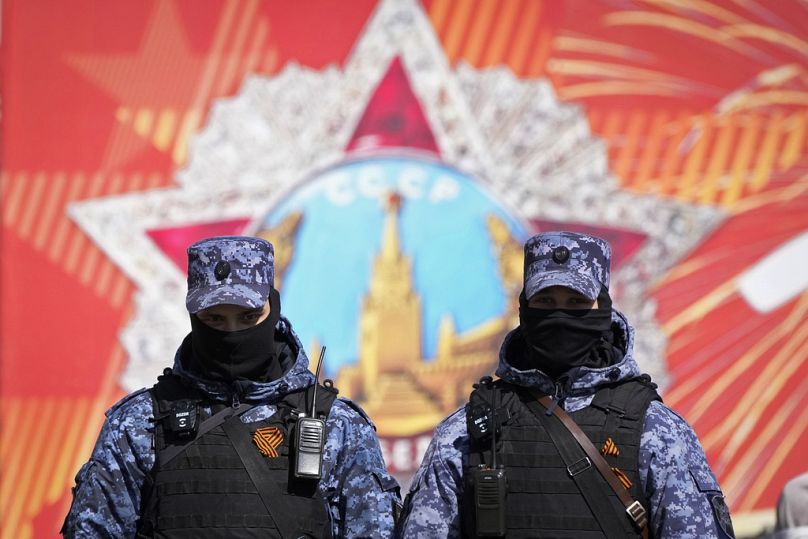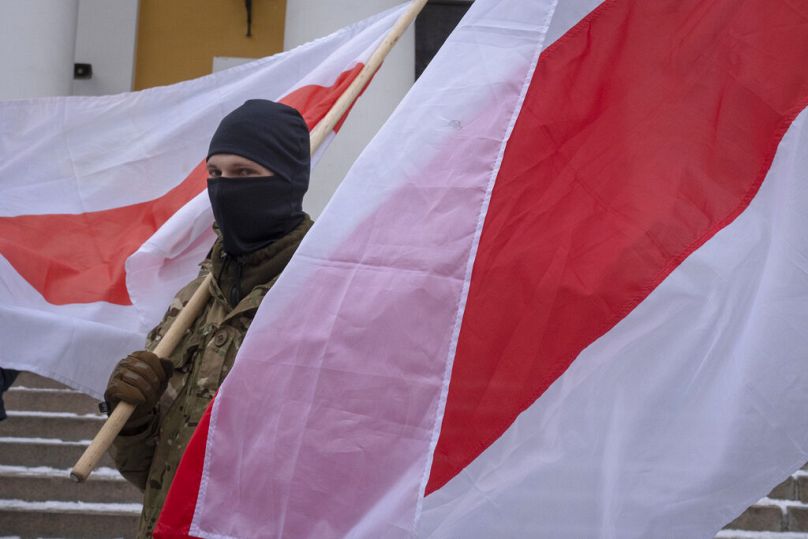The war in Ukraine is putting Europe's commitment to openness, diversity, freedom, solidarity, and individual responsibility to the test, and it is not just Europe’s image that is at stake, André Wilkens and Paweł Zerka write.
Europeans have proven their challengers wrong. Since Russia’s full-scale invasion of Ukraine in late February 2022, European governments and citizens have displayed solidarity with Ukraine and unity within their own ranks.
 ADVERTISEMENT
ADVERTISEMENT
 ADVERTISEMENT
ADVERTISEMENT
This strong European sentiment will be tested in the months ahead. But it is not just Russian disinformation, cost-of-living or migration concerns that may undermine it.
The collective response of the EU and member states to Russia’s war will influence citizens' attitudes inside Europe and Europe’s image abroad.
How far they reassert or undermine European values will determine their credibility and legitimacy.
No room for declinism
The European public is strongly attached to Europe and optimistic about the EU’s future, according to recent opinion polls.
Governments of most EU member states are clearly pro-European — with the sole exception of Hungary (and mixed messages from Poland and Bulgaria).
Throughout the past year, the governments of four countries — the Czech Republic, Denmark, Slovakia, and Slovenia — have demonstrated a growing attachment to Europe.
Meanwhile, in just one (Bulgaria), the government has become more sceptical about the benefits of the European project.
The European Sentiment Compass — a joint initiative by the European Council on Foreign Relations (ECFR) and the European Cultural Foundation (ECF) — explores how Europe is responding to the challenges that Russia’s war on Ukraine constitutes for European values.
The findings should encourage the EU and member state leaders to rethink the way in which they talk and think about Europe.
The 'European sentiment' has been put to the test
When asked how Europe should help them, Ukrainian officials typically call for weapons and ammunition.
Understandably, it is only military equipment that is seen as making an immediate difference on the battlefield.
But the longer the war in Ukraine lasts, the more important it will become to ensure that European support remains acceptable for European citizens and convincing for Ukrainians.
This will require a strong “European sentiment”, to borrow an expression from Robert Schuman, one of the architects of Europe’s post-1945 integration.
EU and member state leaders broadly recognise the risks related to Russian disinformation, the growing cost-of-living crisis, and migration concerns among Europeans.
These could indeed deeply affect the European sentiment and, with it, European support for Ukraine. It’s good that the EU and member state leaders are taking measures to tackle these threats.
Could Russia undermine Europe's unity?
However, it is underestimated how Russian culture, media, and citizens could also undermine European sentiment.
On this, the EU and member state leaders are facing various dilemmas.
Should they restrict the presence of Russian culture in their countries as a sign of solidarity with Ukraine? Should they clamp down on Russian media in the EU27?
Should they impose a travel ban on all Russian citizens? Should they consider Russians as collectively responsible for the war?
Or could they see Russian and Belarussian citizens and cultural actors as allies in stopping the war and in transforming these countries for the better?
Europe has a strong culture of resistance
How EU and member state leaders respond to these dilemmas can either vindicate or refute their image — both in the eyes of their own citizens and those of the rest of the world.
Europe can prove to be trustworthy, peaceful, and strong. Or it can provide arguments for those who claim it is hypocritical, aggressive, and weak.
To avoid the latter scenario, the EU and member state leaders need to regain confidence in liberalism and in their own citizens.
First, they need to be very cautious about their dealings with Russian culture in Europe.
While the war is ongoing, there should be no space in Europe for Russian artists who are, to any extent, related to the Russian state.
However, from this, there is a long way to saying that the entire Russian culture should be put on hold — as some in Kyiv and in the more hawkish EU member states have proposed.
Secondly, the EU and its member states should demonstrate that they are a place where a pluralist debate can happen.
Focusing too much on banning Russian media and chasing fake news puts Europe on the defensive.
Instead of just complaining about Russian propaganda and resorting to measures that may seem like censorship, Europe should be ready to engage in the battle of narratives and win it.
We should avoid black-and-white thinking
Finally, European leaders should resist black-and-white rhetoric — and instead see people as allies.
They should acknowledge that not all Russians bear the same responsibility for the war in Ukraine and that Belarusian citizens are not the same as Lukashenka’s regime.
In fact, many Russian and Belarusian citizens may prove useful allies in ending the war in Ukraine.
The war in Ukraine is putting Europe's commitment to openness, diversity, freedom, solidarity, and individual responsibility to the test.
It is not just Europe’s image in the eyes of the world and of Europeans themselves that is at stake.
Europe’s unity and the continent's support for Ukraine are, too.
André Wilkens is the Director of the European Cultural Foundation (ECF) in Amsterdam. Paweł Zerka is a Senior Policy Fellow at the European Council on Foreign Relations (ECFR) and author of the European Sentiment Compass.
At Euronews, we believe all views matter. Contact us at view@euronews.com to send pitches or submissions and be part of the conversation.











